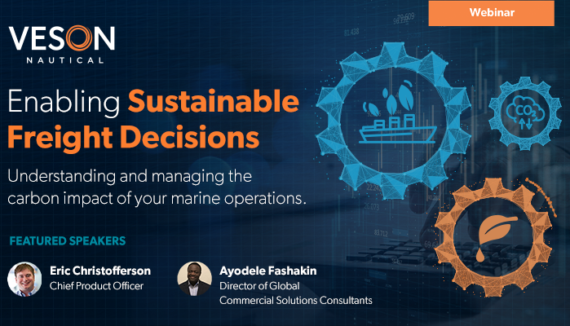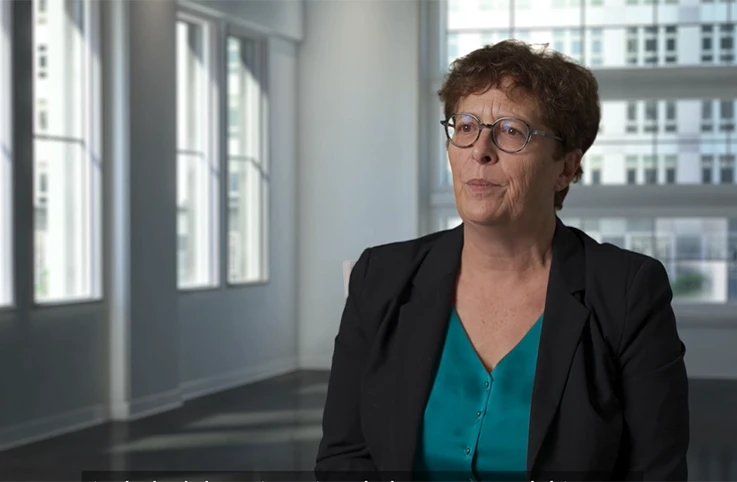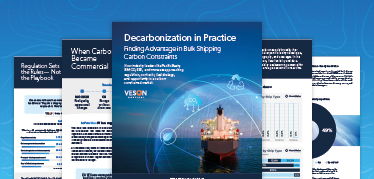
Client Stories / d'Amico
Tech-Driven Approach to Regulations with IMOS


About
d’Amico International Shipping S.A. (DIS) is the d’Amico division operating in the Product Tanker sector, listed since 2007 on the Milan Stock Exchange. It has a modern fleet specialized in the transport of refined petroleum products, serving the main petroleum companies and trading companies.
Company Type
Vessel Owner-Operator
Industry
Chemical, LPG

Marianne Fiorelli
Global Operations Manager
Products Used
The Challenge
Managing evolving fuel and carbon regulations with accurate, real-time data
The Solution
Created a Performance Monitoring team using Veson data, internal reports, and crew data for efficient voyage management
Key Results
- Stronger P&L tracking
- Regulatory readiness
- Fast, well-informed decisions
t
My name is Marianne Fiorelli. I’m working with d’Amico Group and I’m in charge of Global Operations for both tanker and dry cargo business units.
How has d’Amico been tackling compliance challenges, particularly related to FuelEU and carbon intensity regulations?
The landscape of maritime regulation has been evolving in a very complicated way in the last years, especially in the last two years. But d’Amico has been working on this since long ago, more than 10 years ago I would say, by establishing a specific department which is called Performance Monitoring to deal with all these challenges – carbon intensity, consumption, fuel savings.
“We are working together to build up some systems using the tools we have, using Veson and also using also the reportings we have to be able to be up to speed with the FuelEU requirements in early 2025, as we did last year for EU ETS.”
Marianne Fiorelli, Global Operations Manager, d’Amico
And today we are working together very openly with this department, technical department, and also commercial teams are exchanging a lot of data. We are working together to build up some systems using the tools we have, using Veson and also using the reportings we have to be able to be up to speed with the FuelEU requirements in early 2025, as we did last year for EU ETS.
What do you find are the main challenges of incorporating data in decision-making?
Data gathering is an element that has two challenges because first of all, it is the quantity of the data that we gather because we have real-time data flowing into the company. We also need to be aware of the accuracy of the data. If we can control those, we can be more efficient in our voyage performance.
We count on our Masters to give us the information. We don’t want this flow to be fully automated, so we have forms, like Veslink forms, that we send onboard and they come back with information. But we always rely on our Operators to check and to be able to validate the data so that there is always a human aspect in dealing with data. It makes our, let’s say, voyage control more efficient.
How is d’Amico using analytics and reporting to support operations?
Advanced analytics and reporting are the keys of what we call informed decision-making. So first of all, we are trying to create a homogeneous source of data to provide the whole group, the whole company, with the same data.
So the commercial teams are at the center of this network, let’s say, of information because we are the first one to receive the information from the vessels and from the market. So we distribute it in a way, so it creates a better environment to make an informed decision for the top management. And, at the same time, we also realized that profitability is linked to the efficiency on the voyage, on managing voyages, on managing results, on checking P&L on, for example, the Chartering team to be able to follow a voyage in real-time and see what is changing.
“We also realized that profitability is linked to the efficiency on the voyage, on managing voyages, on managing results, on checking P&L, on, for example, the Chartering team to be able to follow a voyage in real time and see what is changing.”
Marianne Fiorelli, Global Operations Manager, d’Amico
And we also have realized that we could increase the, let’s say, the efficiency with which we do our recoveries because by keeping a close eye on outstandings through reporting and daily information, we can be better at recovering the outstandings.
What are your thoughts on key shipping trends and the needs of the modern Operator?
I think, and I think a lot of people share this view in the shipping industry, that the regulations will only become more stringent. What we see now in the EU, with the EU ETS and FuelEU regulations, will just be worldwide in a few years. So we are not going to have an easier life in terms of compliance. So we will need more efficient tools to be able to deal with all the information and to increase, let’s say, Operators’ knowledge of this to be able to respond to the requirements. But we still need to have people be able to clearly understand what they’re doing and have a deep knowledge of shipping to do their job.
Ready to see more?
If you like what you’re reading, let’s take the next step. Schedule your one-on-one demo today.
More to explore

Watch now

Navig8 Group IMOS Video
See the StorySee the story

Decarbonization Industry Guide
See the StoryRead now